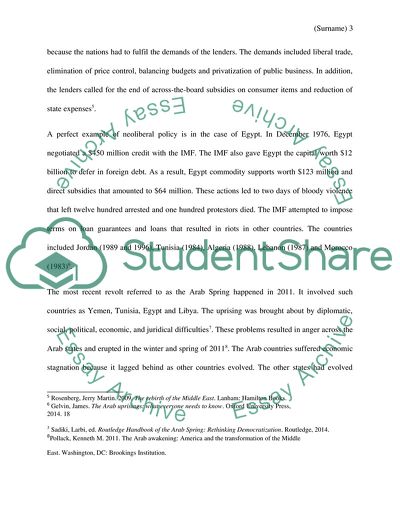Cite this document
(Arab Uprising that Didn't Reach Saudi Arabia Essay Example | Topics and Well Written Essays - 1750 words, n.d.)
Arab Uprising that Didn't Reach Saudi Arabia Essay Example | Topics and Well Written Essays - 1750 words. https://studentshare.org/politics/1863588-why-didnt-the-arab-uprisings-reach-saudi-arabia
Arab Uprising that Didn't Reach Saudi Arabia Essay Example | Topics and Well Written Essays - 1750 words. https://studentshare.org/politics/1863588-why-didnt-the-arab-uprisings-reach-saudi-arabia
(Arab Uprising That Didn'T Reach Saudi Arabia Essay Example | Topics and Well Written Essays - 1750 Words)
Arab Uprising That Didn'T Reach Saudi Arabia Essay Example | Topics and Well Written Essays - 1750 Words. https://studentshare.org/politics/1863588-why-didnt-the-arab-uprisings-reach-saudi-arabia.
Arab Uprising That Didn'T Reach Saudi Arabia Essay Example | Topics and Well Written Essays - 1750 Words. https://studentshare.org/politics/1863588-why-didnt-the-arab-uprisings-reach-saudi-arabia.
“Arab Uprising That Didn'T Reach Saudi Arabia Essay Example | Topics and Well Written Essays - 1750 Words”. https://studentshare.org/politics/1863588-why-didnt-the-arab-uprisings-reach-saudi-arabia.


